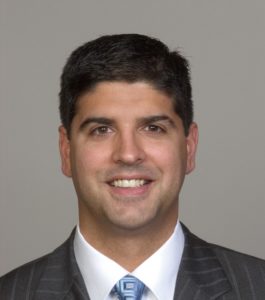

For those of you keeping score at home, it might not look too pretty. But you still have your say.
Following up on the President Biden’s first State of the Union Address, the Centers for Medicare & Medicaid Services issued its proposed rule on April 11 governing 1) the Prospective Payment System and Consolidated Billing for Skilled Nursing Facilities; 2) Updates to the Quality Reporting Program and Value-Based Purchasing Program for Federal Fiscal Year 2023; and 3) Request for Information on Revising the Requirements for Long-Term Care Facilities to Establish Mandatory Minimum Staffing Levels.
Of course, the big headline was that the CMS Proposed Rule would reduce payments to skilled nursing facilities by approximately $320 million.
On top of that, there have been many reports recently that plaintiff lawsuits are piling up against our nation’s nursing homes and assisted living facilities for COVID-19-related deaths and injuries.
These recent developments are just crushing for nursing home operators who thought they were coming out of the COVID-19 pandemic and hoping to increase admissions and get back to normal again. But nursing homes and assisted living facilities have to remember the last two years, not forget them.
After all, the last two years saw heroic efforts by our nursing home clients to stay afloat, to deal with families and residents, all while mercilessly battling the COVID-19 pandemic. The heroes that existed over the last two years are still out there in those nursing homes and assisted living facilities. They can, and undoubtedly will, rise again.
The important thing to remember right now is that the CMS Proposed Rule is just that, a proposed rule. Comments on it are due June 10, 2022, and folks are already writing frantically to respond to it. The themes are pretty obvious at this point:
How can CMS cut payments when nursing homes need the reimbursement more than ever?
In my work with CMS, I find that CMS personnel often think that since nursing homes received all that CARES Act Provider Relief Fund money and all the Payment Protection Plan money, that they have gotten enough and don’t need a break. Nothing could be farther from the truth. We are constantly trying to educate CMS on its misunderstanding of the industry in this regard. That “free money” nursing homes received isn’t free. Plus, just because an entity receives that money, doesn’t mean it is just sitting on the books. It was and has been used already during the pandemic. So for CMS to say that provider relief or PPP funds are a windfall for facilities is a categorical misnomer.
How can CMS consider mandatory minimum staffing when homes are battling to keep up as it is?
CMS’ minimum staffing focus glaringly ignores the reality that homes lost about 15% of their staff (on average) due to COVID-19, and there is a severe staffing shortage that is not getting better. And what about homes that have lost 30%, 40% or more of their staff?
Well, now is the industry’s chance. The chance to comment — nay, argue — with CMS to do the right thing. I’ve seen it too often in my practice dealing with CMS fines and penalties in the survey and enforcement process. In the cases we pursue on behalf of nursing homes, we are constantly shedding light to CMS and its attorneys on the realities of what is happening on the ground at facilities, despite the focused CMS surveys that seem to take a snapshot.
CMS and its surveyors are not concerned with finances, census or staffing shortages. Their focus is on the rules. Perhaps the proposed rule will allow providers to tell their story to CMS, and this time make the agency’s key personnel understand that a reimbursement cut right now is unreasonable and that CMS’ focus on minimum staffing is misplaced amid the current, and highly problematic, staffing shortage.
The above is just a small piece of the types of comments that will be coming in response to the CMS proposed rule. The big question is, will CMS recognize these issues and the struggles our heroes have endured for the benefit of the resident population that they so duly and admirably continue to serve?
It’s everybody’s duty to see that they do.
Neville M. Bilimoria is a partner in the Chicago office of the Health Law Practice Group and member of the Post-Acute Care And Senior Services Subgroup at Duane Morris LLP; [email protected].
The opinions expressed in McKnight’s Long-Term Care News guest submissions are the author’s and are not necessarily those of McKnight’s Long-Term Care News or its editors.





